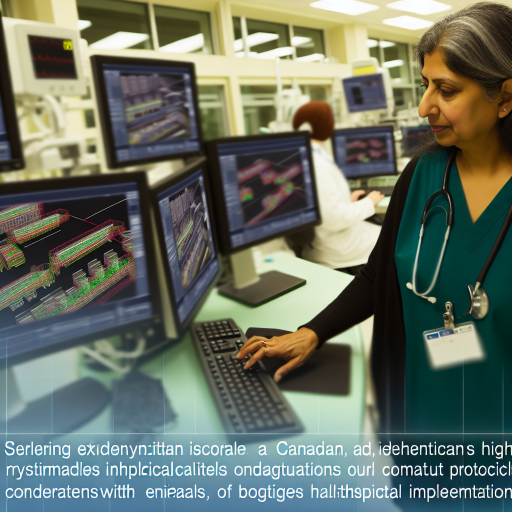Introduction to Petroleum Engineering and Its Environmental Impact
Petroleum engineering plays a vital role in energy production.
It focuses on extracting oil and gas from the earth safely and efficiently.
However, this field also poses significant environmental challenges.
Understanding these challenges is crucial for sustainable practices.
Overview of Petroleum Engineering
Petroleum engineering involves various disciplines, including geology and physics.
Professionals design processes for drilling and production.
They also develop methods for reservoir management.
Environmental Challenges
The extraction of petroleum can lead to environmental degradation.
Oil spills are one of the most damaging incidents associated with this industry.
They cause irreversible damage to marine and coastal ecosystems.
Additionally, fracking exacerbates concerns about groundwater contamination.
Energy Consumption and Carbon Emissions
Petroleum extraction and processing require significant energy input.
This process releases large amounts of carbon dioxide into the atmosphere.
Consequently, it contributes to global warming and climate change.
Mitigating these emissions is a key focus in modern engineering practices.
Technological Innovations
Advancements in technology aim to reduce environmental impacts.
Innovations include improved drilling techniques and waste management systems.
These methods help minimize disruption to surrounding ecosystems.
Regulatory Framework
Governments impose strict regulations on petroleum industries.
These regulations are designed to safeguard the environment.
Compliance is essential for companies operating in this sector.
Regulatory frameworks help in promoting sustainable practices.
Industry Responsibility
Petroleum companies must adopt environmentally friendly practices.
They have a responsibility to protect the areas they operate in.
Community engagement is also vital for fostering goodwill and transparency.
Unlock Your Career Potential
Visualize a clear path to success with our tailored Career Consulting service. Personalized insights in just 1-3 days.
Get StartedOverview of the Petroleum Production Process
Exploration Phase
The exploration phase marks the beginning of petroleum production.
Geologists use various methods to locate potential oil reserves.
Seismic surveys are a common technique in this stage.
Data analysis helps predict where oil deposits may exist.
This process often requires significant investment and time.
Drilling Operations
The drilling phase follows after identifying a site.
Companies use drilling rigs to access underground reservoirs.
This process involves precision and advanced technology.
Crews monitor the drilling to ensure safety and efficiency.
Production Stage
Once drilling is successful, the production stage begins.
Oil is extracted using various methods, including pumps.
Optimization of extraction techniques increases yield.
Dedicated teams manage the daily operations at the site.
Transport of Petroleum
Transporting petroleum from the site to refineries is crucial.
Pipelines are the most common method for this transport.
Trucks or tankers may also be used in certain situations.
Ensuring the transport is safe minimizes environmental risks.
Refining Process
The refining stage transforms crude oil into usable products.
Refineries separate oil into different components through distillation.
This process produces gasoline, diesel, and jet fuel, among others.
Refining also includes removing impurities for safety and quality.
Environmental Considerations
Throughout the petroleum production process, environmental aspects are important.
Companies must adhere to regulations to minimize ecological impacts.
Monitoring for spills or leaks is essential at all stages.
New technologies help reduce the carbon footprint of operations.
Investing in sustainable practices promotes long-term viability.
Environmental Regulations Affecting Petroleum Engineering Practices
Overview of Environmental Regulations
Environmental regulations shape the petroleum engineering landscape significantly.
They ensure responsible resource development and management.
Ultimately, these regulations protect air, water, and land quality.
Key Regulatory Frameworks
Regulatory frameworks vary by region and often include federal, state, and local laws.
The National Environmental Policy Act (NEPA) is a crucial federal law in the U.S.
NEPA mandates environmental impact assessments for projects.
Additionally, the Clean Water Act regulates discharges into U.S. waters.
This law promotes water quality and aquatic habitat protection.
State regulations may include unique requirements tailored to local ecosystems.
Permitting Process
The permitting process plays a vital role in petroleum engineering compliance.
Companies must obtain various permits before commencing operations.
This process ensures adherence to environmental standards.
Permits often require extensive documentation and impact studies.
Moreover, public consultation is frequently part of the process.
Impact Mitigation Strategies
Mitigation strategies help reduce environmental impacts during operations.
Technological advancements contribute significantly to these strategies.
For instance, improved drilling techniques minimize surface disruption.
Implementing spill prevention measures is essential for protecting ecosystems.
Regular monitoring of emissions ensures compliance with air quality standards.
Future Trends in Environmental Regulations
Future regulations are likely to become more stringent as climate concerns grow.
Global agreements, such as the Paris Agreement, influence national policies.
Companies may need to adapt to stricter emissions targets.
Moreover, increased transparency in practices could emerge as a priority.
Ultimately, collaboration between industry and regulators will be crucial.
Uncover the Details: Career Growth Opportunities for Petroleum Engineers
Assessment of Pollutants Generated by Petroleum Extraction and Processing
Types of Pollutants
Petroleum extraction and processing generate various pollutants.
These include hydrocarbons, volatile organic compounds, and heavy metals.
Additionally, they produce sulfur dioxide and nitrogen oxides.
Each pollutant poses unique risks to the environment and public health.
Sources of Pollution
Pollution primarily originates from drilling, refining, and transporting oil.
Drilling operations release hydrocarbons into the atmosphere.
Refineries generate sulfur dioxide and other chemicals during processing.
Transportation accidents can lead to oil spills and contamination.
These incidents significantly impact nearby ecosystems and communities.
Impact on Air Quality
Hydrocarbons and volatile organic compounds contribute to poor air quality.
These substances can form ground-level ozone, worsening respiratory problems.
Additionally, they may lead to long-term health issues for exposed populations.
Evaluating air quality near petroleum facilities is crucial for public safety.
Impact on Water Resources
Oil spills and leaks contaminate water bodies, harming aquatic life.
Heavy metals from processes can seep into groundwater supplies.
These pollutants disrupt ecosystems and threaten drinking water sources.
Monitoring water quality near extraction sites protects public health.
Mitigation Strategies
Implementing effective regulations can reduce pollution from petroleum activities.
Adopting cleaner extraction and refining technologies lowers emissions.
Regular monitoring ensures compliance with environmental standards.
Community involvement in environmental assessments fosters transparency.
Find Out More: Metallurgical Engineering Internships for Students
Technological Innovations Aimed at Reducing Environmental Footprint in Petroleum Engineering
Introduction to Technological Innovations
Petroleum engineering has evolved significantly over the years.
Innovations now focus on minimizing environmental impacts.
These advancements aim to reduce carbon emissions and waste management challenges.
Advanced Drilling Techniques
New drilling techniques improve efficiency and safety.
Horizontal drilling allows access to resources with less surface disruption.
This method decreases the number of well sites needed.
Consequently, it reduces the overall environmental footprint.
Enhanced Oil Recovery Methods
Enhanced oil recovery (EOR) technologies increase extraction efficiency.
Methods like CO2 injection help reduce greenhouse gas emissions.
They also improve oil recovery rates from existing wells.
As a result, less drilling is required for new wells.
Renewable Energy Integration
Integrating renewable energy into petroleum operations is crucial.
Solar and wind energy can power drilling rigs and refineries.
This shift decreases reliance on fossil fuels.
Moreover, it minimizes environmental impacts associated with traditional energy sources.
Water Management Solutions
Effective water management is essential in petroleum engineering.
Recycling and reusing water reduce fresh water consumption.
Technology now allows for advanced water treatment processes.
This ensures that produced water is treated and reused responsibly.
Reducing Flaring and Venting
New technologies minimize gas flaring and venting during production.
Gas capture systems collect excess gas for use or sale.
This approach reduces greenhouse gas emissions significantly.
Therefore, it mitigates the overall environmental impact.
Monitoring and Compliance Tools
Innovative monitoring technologies enhance compliance with regulations.
Real-time data collection aids in tracking emissions and spills.
Remote sensing technologies detect leaks and assess environmental impact.
Such tools promote transparency and accountability in operations.
Gain More Insights: Mechatronics Engineering Career Path in Canada

Case Studies of Environmental Incidents in the Petroleum Industry
Overview of Notable Environmental Incidents
The petroleum industry has faced several significant environmental incidents.
Many of these incidents have caused widespread ecological damage.
Furthermore, they highlight the need for improved safety measures.
Deepwater Horizon Oil Spill
The Deepwater Horizon oil spill occurred in April 2010.
This incident is one of the largest environmental disasters in history.
Approximately 4.9 million barrels of oil leaked into the Gulf of Mexico.
The spill severely impacted marine and coastal ecosystems.
Houston-based BP was responsible for the operation of the rig.
In response, BP implemented measures to improve safety protocols.
Exxon Valdez Oil Spill
The Exxon Valdez oil spill happened in March 1989.
This disaster released around 11 million gallons of crude oil into Prince William Sound.
The spill caused extensive damage to marine wildlife and local fisheries.
Exxon faced lawsuits and public backlash following the incident.
They have since invested in spill prevention and emergency response training.
Marathon Petroleum Refinery Incident
In 2019, an explosion occurred at Marathon Petroleum’s refinery in Detroit.
The explosion released harmful chemicals into the surrounding air and soil.
Investigators cited equipment failure as the cause of the incident.
Marathon responded by increasing inspections and maintenance checks.
Impact on Communities
Environmental incidents often affect local communities profoundly.
Residents may face health risks due to toxic exposures.
Moreover, economic repercussions can limit local growth.
Community organizations often mobilize for environmental justice after such incidents.
Regulatory Response and Changes
These incidents prompted regulatory agencies to take action.
Governments worldwide have tightened regulations on the petroleum industry.
Stricter compliance measures now aim to prevent future spills and accidents.
Environmental assessments have become mandatory for new projects.
These changes reflect a growing awareness of environmental responsibilities.
Find Out More: Role of Petroleum Engineers in Sustainable Energy
The Role of Petroleum Engineers in Environmental Conservation and Sustainability
Understanding Environmental Responsibilities
Petroleum engineers play a crucial role in environmental conservation.
They design processes that minimize ecological impact.
Furthermore, they ensure compliance with environmental regulations.
Innovating Sustainable Practices
Engineers develop methods to enhance oil recovery sustainably.
They analyze reservoir performance to optimize resource use.
Additionally, they implement technologies that reduce flaring emissions.
Monitoring Environmental Impacts
Petroleum engineers regularly assess environmental risks.
They monitor soil and water quality around drilling sites.
This proactive approach helps identify potential contamination early.
Collaborating with Environmental Experts
Collaboration between engineers and environmental scientists is essential.
Such partnerships lead to better environmental strategies.
Together, they conduct environmental impact assessments effectively.
Engaging in Community Relations
Petroleum companies often engage with local communities.
Engineers play a key role in these outreach programs.
They educate communities about safety and environmental practices.
Advancing Renewable Energy Solutions
Many engineers are now focusing on renewable energy projects.
They integrate traditional oil operations with renewables.
This transition supports broader sustainability goals.
Future Trends in Petroleum Engineering: Balancing Energy Needs with Environmental Stewardship
Innovations in Technology
Petroleum engineers are focusing on advanced technologies to improve efficiency.
Innovations such as digital twin technology optimize resource management.
Furthermore, machine learning algorithms enhance drilling techniques.
These advancements reduce waste and increase energy recovery rates.
Enhanced Environmental Regulations
Government policies are evolving to enforce stricter environmental standards.
Regulations encourage companies to adopt greener practices.
For instance, carbon capture and storage technologies mitigate emissions.
Such initiatives lead to more sustainable extraction processes.
Renewable Energy Integration
The petroleum sector increasingly integrates renewable energy sources.
Hybrid energy systems utilize both fossil and renewable energy effectively.
As a result, companies are diversifying their energy portfolios.
This approach enhances energy security and reduces ecological footprints.
Community Engagement and Responsibility
Active community engagement is becoming vital for petroleum companies.
Firms prioritize transparent communication about environmental impacts.
Moreover, investment in local communities promotes sustainable practices.
This fosters goodwill and supports social responsibility initiatives.
Research and Development in Sustainability
Petroleum engineering research increasingly emphasizes sustainability.
Funding for green projects is expanding within oil companies.
Innovative solutions aim to minimize the carbon footprint of extraction.
Collaboration with academic institutions fosters new ideas and technologies.
Additional Resources
Creating a sustainable world through engineering: From global …
Upstream: Production and Exploration – Oil and Gas Industry: A …




